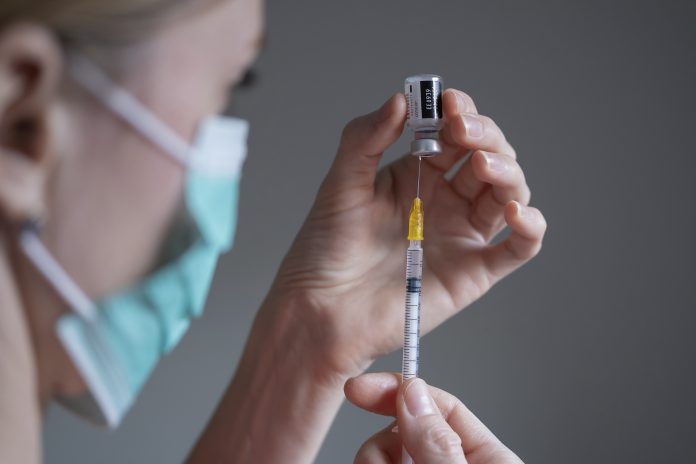A “human error” created a factory mixup for Johnson & Johnson in Baltimore, Maryland, damaging up to 15 million vaccine doses – but this does not impact doses that are ready for use
Emergent BioSolutions are in charge of the Baltimore factory which experienced a major production error. The Food and Drug Administration (FDA) are currently investigating.
The damage to 15 million vaccine doses means that future shipments of Johnson & Johnson may now be damaged, due to a “human error” that led to a mix-up of ingredients.
Emergent are also working on manufacturing AstraZeneca vaccines.
There is no evidence that AstraZeneca vaccines were harmed, and the damaged batch of Johnson & Johnson vaccines are quarantined. They will not be delivered to any country.
66% effective in one shot
The vaccine was given Emergency Use Authorisation in the US on 1 March, after clinical trials showed that the Johnson & Johnson vaccine was 86% effective after two doses.
The drugmaker was also recognised as creating one of the first one dose vaccines – meaning one dose of the vaccine would give a protection level of 66%.
Alex Gorsky, Chairman, Board of Directors and Chief Executive Officer, Johnson & Johnson, commented on the results: “We’re proud to have reached this critical milestone and our commitment to address this global health crisis continues with urgency for everyone, everywhere.”
Countries which are seeking to vaccinate as many people as possible in one swoop could opt for using a vaccine like this to stabilise the virus – giving an initial dose out to as many people as possible.
The cost of exporting vaccines
At the moment, complex intellectual property laws prevent poorer countries from accessing any COVID vaccine recipes – with factories standing empty and ready to create the doses.
Rachel Thrasher, Research Fellow at the Global Development Policy Center in Boston, said: “The financial costs to all countries during the pandemic goes far beyond paying for the research and development, treatments and vaccines to manage COVID-19 cases.
“Economic impacts will be felt across the global economy through supply chain disruptions rooted in growing inequality within and between countries, likely costing around $9.2 trillion dollars, half of which would be borne by a handful of developed economies.”
The US Government in August 2020 gave more than than $1 billion to Johnson & Johnson for the production of 100 million doses, with the condition that the US is eligible to order an additional 200 million doses.
The agreement puts the US at the front of the priority list for vaccination via Johnson & Johnson.
The European Union did not sign any EU-first priority agreements with vaccine makers – believing in good faith dissemination of the vaccine. This led to the ongoing feud between AstraZeneca and the Member States, as they scrabble to regain the bulk of their expected dose deliveries.
Editor's Recommended Articles
-
Must Read >> FDA approves the Johnson & Johnson vaccine for use














